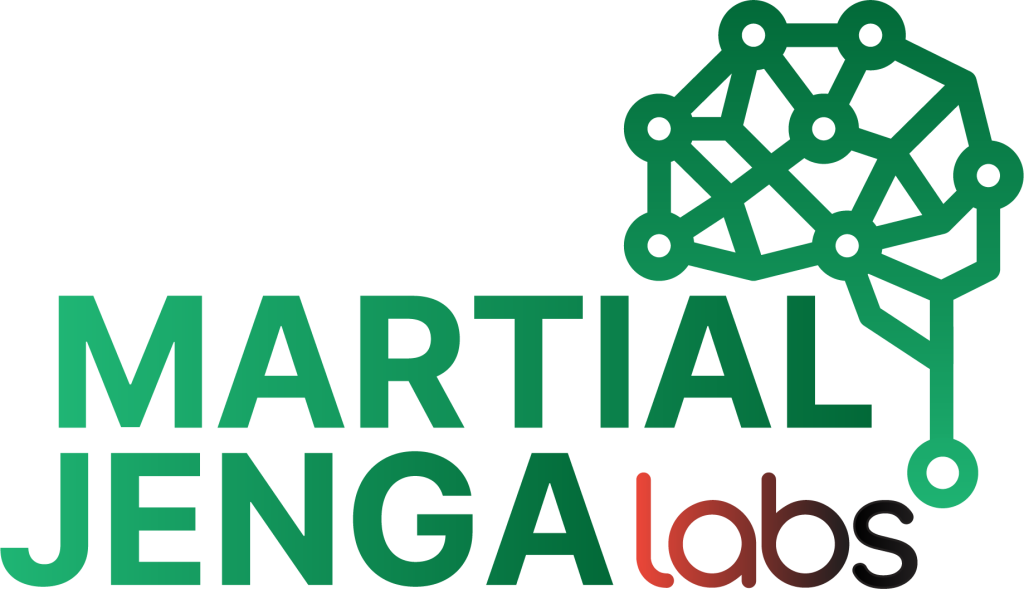Author

Eric Kiplangat
Design & AI
Share Via
Nigeria's Web3 Evolution
Why Africa's Tech Giant Is Building Beyond Crypto Trading

Think Web3 in Africa means just cryptocurrency trading? Think again. Nigeria is quietly building something far more ambitious—and it’s catching the world’s attention.
How 1.1 Million Developers Are Reshaping Blockchain Innovation Across Finance, Healthcare, and Public Services
The numbers tell an incredible story. Over 80 Nigerian Web3 startups have raised $130 million collectively. Moreover, the country now contributes 4% of all new Web3 developers globally. That’s the highest from any African nation. But here’s what’s truly fascinating: these developers aren’t just building crypto wallets. Instead, they’re reimagining how entire sectors work.
From Trading to Building: The Great Shift
For years, Nigeria topped global charts for cryptocurrency adoption. However, that story focused mainly on trading and speculation. Now, things are changing dramatically.
📢 𝐍𝐢𝐠𝐞𝐫𝐢𝐚 𝐖𝐞𝐛𝟑 𝐋𝐚𝐧𝐝𝐬𝐜𝐚𝐩𝐞 𝐑𝐞𝐩𝐨𝐫𝐭 𝟐𝟎𝟐𝟒 𝐢𝐬 𝐋𝐢𝐯𝐞
— Hashed Emergent (@HashedEM) April 14, 2025
We are excited the unveil the first-ever Nigeria Web3 Landscape Report, in collaboration with our knowledge partners @QuidaxGlobal, @withconvexity_ , @Web3Bridge, and @InfusionLawyers.
Now in its… pic.twitter.com/jOMWgJJd3c
According to Hashed Emergent’s 2024 Nigeria Web3 Landscape Report, the ecosystem has matured beyond simple trading. Today, Nigerian developers are creating blockchain solutions for healthcare systems, land registries, education records, and government services. Furthermore, they’re building payment infrastructure that’s reshaping how money moves across borders.
The Stablecoin Revolution
Stablecoins have become Nigeria’s secret weapon. In the first quarter of 2024 alone, stablecoin transfers reached nearly $3 billion. That’s real money solving real problems.
Why the explosion? Simple economics. When your local currency faces volatility, stablecoins offer stability. Additionally, they enable cross-border payments without the traditional banking headaches. For millions of Nigerians, stablecoins aren’t a speculative investment—they’re a practical tool for daily survival.
The USDT/NGN trading pair is now the most traded on centralized exchanges. Meanwhile, 45% of Nigerian Web3 developers receive payment in stablecoins. Another 31% get paid in ETH, BTC, or SOL. Consequently, an entire economy is running on blockchain rails.
According to @artemis + P2P Army data, stablecoin usage is rising fast across non-USD markets.
— Tamar 天马 (@tamarincrypto) September 10, 2025
Nigeria is on pace to flip the CNY in P2P volume.
Nearly every country is showing growth. Stablecoins are increasingly used around the world. pic.twitter.com/NmX7N2wod0
This chart shows Nigeria is on pace to flip CNY in peer-to-peer stablecoin volume—proof that stablecoins are solving real economic problems.
The Developer Explosion: Young, Bold, and Building
Here’s where things get really interesting. Nigeria’s developer ecosystem grew 28% year-over-year, reaching 1.1 million total developers in 2024. But the demographics reveal something extraordinary.
Remarkably, 86% of Web3 developers are under 27 years old. Even more impressive? Over half entered the space within the past year. These aren’t seasoned tech veterans—they’re young innovators learning by doing.
Community-led initiatives are driving this growth. Organizations like Web3bridge, SuperteamNG, and Web3Ladies are training thousands of developers. Additionally, bootcamps from Solana, Base, and Starknet are creating pathways into the industry.
These aren’t just statistics. These are real people whose information got stolen, potentially ruining their financial lives.
The employment structure reflects this grassroots energy. Only 15% work full-time traditional jobs. Instead, 41% freelance, taking on international projects and bounty programs. This flexibility allows young developers to build skills while earning competitively.
Beyond Fintech: Where Innovation Is Happening
Finance might grab headlines, but Nigeria’s Web3 ecosystem is diversifying rapidly. Let’s explore the surprising sectors seeing blockchain adoption.
Healthcare Gets a Blockchain Makeover
Nigerian startups are implementing blockchain for healthcare records. The benefits? Improved data security, better patient privacy, and seamless information sharing between facilities. Consequently, patients can access their medical history anywhere, anytime.
This solves a massive problem. Traditional paper-based systems are slow, error-prone, and easily lost. Blockchain offers a permanent, tamper-proof alternative.
Land Registries Enter the Digital Age
Property disputes plague Nigeria’s legal system. Unclear ownership records lead to endless court battles. Therefore, blockchain-based land registries are revolutionary.
State governments are piloting systems that record property ownership on-chain. This creates transparent, immutable records that anyone can verify. As a result, fraud becomes nearly impossible, and disputes decrease dramatically.
Education Records Go On-Chain
Credential fraud is a serious issue in Nigeria’s education sector. Fake certificates undermine trust and harm legitimate graduates. Hence, blockchain verification systems are gaining traction.
Universities are exploring on-chain credential storage. Students receive digital certificates that employers can instantly verify. Moreover, these credentials remain accessible even if institutions close or records are lost.
Public Services Embrace Transparency
National agencies are implementing blockchain for identity verification. The technology improves transparency while reducing bureaucratic inefficiency. Furthermore, it helps combat corruption by creating audit trails.
Blockchain-based point-of-sale infrastructure now tracks transaction data for over 50 million users. This integration demonstrates that Web3 isn’t just theoretical—it’s operational at scale.
The Infrastructure Boom: Building the Foundation
While applications grab attention, infrastructure is where the real money is flowing. In 2024, infrastructure startups secured $11 million—a 270% increase from 2023. This represents the sector’s highest funding since 2021.
What changed? Investor focus shifted toward blockchain payment infrastructure and cross-chain interoperability. Projects like Zone and HyperBridge exemplify this trend.
Zone builds blockchain payment solutions designed specifically for African markets. Meanwhile, HyperBridge focuses on enabling seamless cross-chain transactions. Both address critical pain points in the current ecosystem.
Interestingly, funding moved away from DePIN (Decentralized Physical Infrastructure Networks) and RWA (Real World Assets) toward more immediately practical solutions. This suggests investors are prioritizing near-term utility over speculative applications.
The Funding Reality: Challenges and Opportunities
Let’s be honest—funding remains challenging. Total Web3 funding dropped slightly from $22 million in 2023 to $20 million in 2024. However, this decline masks important nuances.
Finance sector funding jumped from $2 million to $7 million. Infrastructure funding surged by 270%. On the other hand, entertainment and gaming funding dropped from $17 million to $2 million. This shift reflects evolving investor priorities toward practical, revenue-generating applications.
Despite challenges, investor enthusiasm persists. A mix of international, regional, and ecosystem-focused funds continues supporting Nigerian startups.
The Regulatory Puzzle: Progress and Contradictions
Nigeria’s regulatory environment is evolving—but it’s complicated. The journey has been marked by dramatic reversals and ongoing contradictions.
The Banking Ban and Reversal
In 2021, the Central Bank of Nigeria (CBN) restricted banks from handling crypto transactions. This created massive uncertainty for the ecosystem. However, in December 2023, the CBN reversed course. Banks can now serve licensed Virtual Assets Service Providers (VASPS).
This reversal signaled growing regulatory acceptance. Nevertheless, challenges remain.
The Exchange Blocking Controversy
In 2024, the Nigerian Communications Commission (NCC) blocked major exchanges like Binance and Coinbase. At the same time, the Securities and Exchange Commission (SEC) approved local platforms like Quidax.
This contradiction creates confusion. Why block international exchanges while approving domestic ones? The answer involves complex regulatory turf wars and competing agency mandates.
Progress Toward Clarity
Despite contradictions, progress continues. The SEC introduced the Accelerated Regulatory Incubation Program (ARIP) to streamline VASP licensing. Additionally, the Investments and Securities Act 2024 signals movement toward a cohesive framework.
Industry groups are actively engaging with regulators. Organizations like SiBAN, VASPA, and FintechNGR advocate for clearer policies. Their efforts are gradually yielding results.
However, major gaps persist. There’s no unified digital asset legislation. Multiple agencies have overlapping mandates. Frameworks for DeFi, NFTs, and DAOs remain unclear.
The Global Impact: Nigeria's Role in Web3's Future
Nigeria isn’t just building for local markets—it’s contributing to the global Web3 economy. Nigerian developers are accessing international roles, participating in bounty programs, and launching startups that serve worldwide customers.
This global orientation stems from necessity. Nigerian developers learned early that local markets alone couldn’t sustain growth. Therefore, they built internationally competitive skills and networks.
Tak Lee, CEO of Hashed Emergent, captures this perfectly: “Nigeria’s developer talent is its competitive advantage. The country’s young, tech-savvy workforce is building not only for Nigeria but also contributing to the global Web3 economy.”
Beyond the Hype
Nigeria’s Web3 story transcends cryptocurrency trading speculation. It’s about building infrastructure for the next generation of digital services. It’s about young developers creating opportunities in a challenging economic environment. It’s about reimagining how essential services work.
The numbers are impressive. The trajectory is encouraging. However, challenges remain significant. Success requires sustained effort from entrepreneurs, investors, regulators, and communities.

